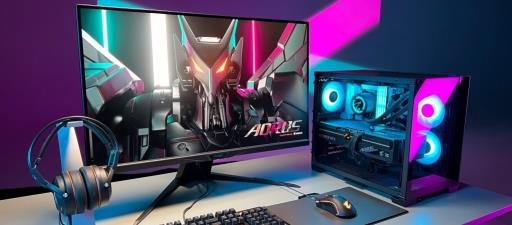How to build a gaming pc,To build a gaming PC, you need specific components: a central processing unit (CPU), graphics processing unit (GPU), motherboard, memory (RAM), storage (SSD or HDD), power supply unit (PSU), and a case. Each part plays a vital role in the PC’s performance. The CPU and GPU handle the processing of games, while the motherboard connects and controls the communication between all parts. RAM ensures smooth multitasking, and storage is essential for game files.
A good PSU provides reliable power, and the case houses everything, offering airflow and protection. Additionally, you may want a cooling system (air or liquid cooling) to prevent overheating. Optional components include RGB lighting for aesthetics and peripherals like a monitor, keyboard, and mouse.
How much does it cost to build a gaming PC?
The cost of building a gaming PC varies based on your goals and budget. Entry-level gaming PCs typically cost between $500 and $800, offering decent performance for 1080p gaming in most games.
A mid-range build, priced between $1,000 and $1,500, can handle gaming at higher resolutions, such as 1440p, and usually provides smoother frame rates. For high-end gaming PCs, costs can exceed $2,000, delivering superior performance in 4K gaming, faster load times, and enhanced visuals.
The cost also depends on individual part choices, as prices for CPUs and GPUs can vary widely, especially with newer technology. Additional expenses, like peripherals (keyboard, mouse, monitor), should also be considered. Careful research and planning can help you find the right balance between performance and cost.
How to choose the best GPU for a gaming PC?
Choosing the best GPU for a gaming PC depends on your desired performance and budget. Start by identifying the games you plan to play and the resolution you want, such as 1080p, 1440p, or 4K. High-end GPUs, like the NVIDIA GeForce RTX 3080 or AMD Radeon RX 6800 XT, excel in demanding games at high resolutions. For mid-range gaming, options like the RTX 3060 or RX 6600 XT are often sufficient for solid 1080p performance.
Check reviews, benchmarks, and VRAM (video memory) to understand a GPU’s capabilities. Additionally, ensure compatibility with your other components, particularly the power supply and case size.
What is the best processor for gaming?
The best processor for gaming varies depending on budget and gaming needs. High-performance CPUs, like Intel’s Core i9-12900K or AMD’s Ryzen 9 5900X, provide exceptional gaming performance but are often costly.
Mid-range options, such as the Intel Core i5-12600K or AMD Ryzen 5 5600X, offer a great balance of performance and price, handling most games smoothly without overloading the budget. Gaming primarily relies on single-core performance, so look for CPUs with high clock speeds and strong single-core performance. When choosing, ensure that the CPU is compatible with your motherboard’s socket and that you have adequate cooling, as powerful CPUs can generate significant heat during gaming sessions.
FAQ’S
How much RAM do I need for gaming?
For gaming, 16GB of RAM is generally sufficient for most modern games and multitasking. It provides a smooth gaming experience and helps manage background processes without slowing down performance.
What is the best motherboard for a gaming PC?
The best motherboard for a gaming PC depends on your CPU choice and desired features. Look for compatibility, expansion options, and features like PCIe slots, USB ports, and support for high-speed RAM.
How to install a CPU in a gaming PC build?
Installing a CPU requires care. Align the CPU with the motherboard socket, matching the arrows, then gently place it and secure it using the retention bracket. Avoid touching the pins to prevent damage.
What power supply is needed for a gaming PC?
A power supply between 500W and 750W is typical for gaming PCs, depending on the components. Choose a reliable, efficient PSU to ensure stable power delivery and protect your components.
